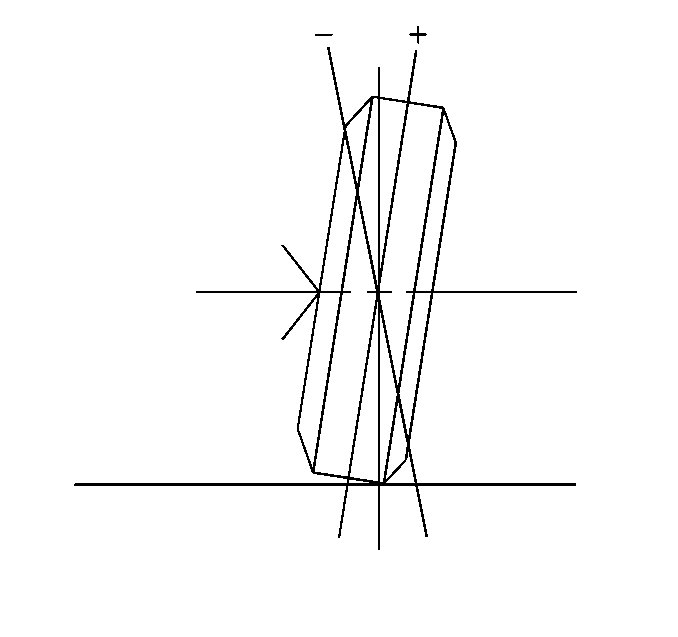Chevrolet Sonic Repair Manual: Camber Description

Camber is the tilting of the wheels from the vertical when viewed from the front of the vehicle. When the wheels tilt outward at the top, the camber is positive (+). When the wheel tilts inward at the top, the camber is negative (−). The amount of tilt is measured in degrees from the vertical. Camber settings influence the directional control and the tire wear.
Too much positive camber will result in premature wear on the outside of the tire and cause excessive wear on the suspension parts.
Too much negative camber will result in premature wear on the inside of the tire and cause excessive wear on the suspension parts.
Unequal side-to-side camber of 1 degree or more will cause the vehicle to pull or lead to the side with the most positive camber.
Cross Camber is the difference between the left camber value and the right camber value.
Cross Camber = L camber − R camber
 Aluminum Wheel Refinishing
Aluminum Wheel Refinishing
Finish Damage Evaluation Procedure
Note:
If the wheels are chrome-plated, do not re-plate or refinish
the wheels.
If the wheels are polished aluminum, do not r ...
 Caster Description
Caster Description
Caster is the tilting of the uppermost point of the steering axis either forward
or backward, when viewed from the side of the vehicle. A backward tilt is positive (+)
and a forward tilt ...
Other materials:
Sunroof
On vehicles with this feature, the sunroof only operates when the ignition is
turned to ON/RUN or Retained Accessory Power (RAP) is active.
Open/Close: To open the sunroof, press and hold the rear of the switch. To close
the sunroof, press and hold the front of the switch.
Vent: Press and ho ...
Rear Side Door Window Switch Replacement
Rear Side Door Window Switch Replacement
Callout
Component Name
Preliminary Procedure
Remove the rear side door window switch bezel. Refer to Rear Side Door
Window Switch Bezel Replacement.
1
Re ...
Airbag Side Impact Sensor Replacement (with AYF/AYO)
Airbag Side Impact Sensor Replacement
Callout
Component Name
Warning: Refer to SIR Warning.
Warning: Refer to SIR Inflator Module Handling and Storage
Warning.
Warning: Following the deployment o ...
0.0064
